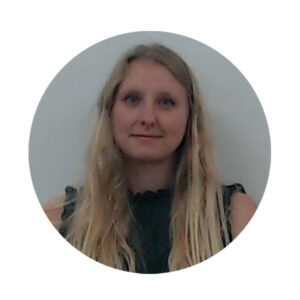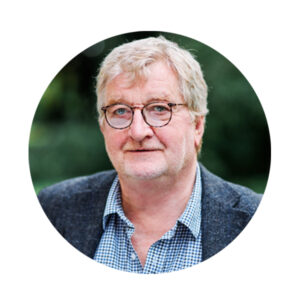This webinar will bring attention to, and focus on, the emotional components of being a pupil or student in the journey of schooling and learning. The session will take strong and particular interest in the rise in problems of attendance during and since the COVID closures, along with rising suspension & exclusion rates in the years leading up to the pandemic, and at present. Speakers and participants will explore approaches for which there is evidence that “school based anxiety” driving attendance and inclusion problems can be addressed positively, in the interest of individual achievement outcomes and children’s investment in learning.
Booking
Sign up at this link or on the Book Now button at the top of the screen, and complete the form that follows. You’ll then receive an email confirmation and a link to the webinar, plus we’ll send you a calendar reminder nearer the time. All delegates will have exclusive access to a recording available for 90 days after the event, together with slides.
- ACAMH Members MUST login to book onto the webinar in order to get a CPD certificate
- Non-members this is a great time to join ACAMH, take a look at what we have to offer, and make the saving on these sessions
- Bookings close on Wednesday 2 October, 17:00 UK time
£30 ACAMH Members
£45 Non Members Join now and save, membership starts from £5
£5 Undergraduate / Postgraduate Members
FREE for ACAMH Low and Middle Income Countries Members
Don’t forget as a charity any surplus made is reinvested back as we work to our vision of ‘Sharing best evidence, improving practice’, and our mission to ‘Improve the mental health and wellbeing of young people aged 0-25’.
About the day
There will be presentations from speakers together with elicited discussion with, and between, participants to understand their perspectives, and experience of “what works / what might work / would work” on the following issues:
- Building Blocks for Interagency Practice: Health / Social Care / Education.
- Schools and families/carers working together to support inclusion, learning and enjoyment learning and school life.
- Acceptance of learner differences, and nurture of flourishing through learning.
- Trigger factors, what is supportive to alleviate a young learner’s anxiety in school and to help each flourish.
- Alternative strategies to reduce exclusion or school avoidance, whilst fostering personal achievement and confident learning.
Key learning outcomes
- Why it is important to find ways of broadening inclusion in school and learning.
- Approaches and strategies broaden inclusion in classrooms and learning activities.
- Anxiety and anxious arousal in its various forms in schools, classrooms, in engaging with learning activities, and coming in to school.
- Spotting / identifying anxious arousal in various forms in young learners, and triggers for this in differing children.
- Working around anxious responses of children in school.
- The importance of working with parents to help children in their adjustment to learning and life in school.
- Why making mistakes is part of learning, and how to help children accept themselves through a culture of growth mindset.
- Whole school approaches and school policies to improve overall inclusion and support all children to know and develop their strength as learners.
Who should attend
Clinicians, Psychologists, Psychiatrists, SENCOs, Teachers and Education Workers, Social workers working with families and children, parent representatives, School Governors, ACAMH members.
Programme
About the speakers

Alex Yates has over 15 years experience as a school leader, most recently as Head teacher of the Royal Free Hospital Children’s School in Camden, North London which in 2023 opened new provision designed to support children with EBSA. Take a look as this article from The Guardian. Alex was a founding Director of the National Association for Hospital Education. He has also been a regional committee member for ACAMH; chair of a Trust Member’s committee and a regular contributing writer to the T.E.S. He now takes a special interest in solution focused approaches and training and continues to work through Camden Learning.

Andy Couldrick is a qualified social worker with 30 years’ experience. His leadership career has been spent improving children’s and council services more widely. He is currently Chair, Birmingham Children’s Trust, Previously he was the Trust’s first Chief Executive, setting up the Trust in 2018. The Trust provides all of Birmingham’s social care services for children. It is the largest Trust in the country, and has made real progress: in 2023 all services were rated Good by Ofsted, after a decade if inadequate services. Andy was a local authority Chief Executive before coming to Birmingham, and before that a DCS. Andy currently undertakes independent work, including as a Commissioner for the DfE.

Dr. Ashley Liew is a Consultant Paediatric Neuropsychiatrist who works both in a Tertiary Paediatric Neurodevelopmental service based in the Evelina London Children’s Hospital, as well as National and Specialist CAMHS services at South London and Maudsley NHS Foundation Trust. He has clinical and academic interests in the mental health of children with neurodevelopmental conditions (eg. Intellectual Disabilities, Autism, ADHD) and neurological conditions (eg. Epilepsy, Neuroinflammatory conditions, Brain injuries). He is an Honorary Associate Professor at the University of Warwick and is also involved in a range of senior leadership positions (eg. Royal College of Psychiatrists).

Dr. Charlotte Jones holds the position at the University of Warwick of Associate Professor and Director of BA(Hons) Early Childhood and BA(Hons) Child and Family: Health and Wellbeing/Mental Health. Charlotte is responsible for creating and delivering the strategic vision across her portfolio with particular focus on innovation, sustainability, and quality enhancement. Charlotte also undertakes the role of Safeguarding Officer and she is also an Accredited Civil Mediation Council Workplace Mediator. Charlotte has significant experience of working with the 0-5 age range as well as training practitioners across education settings including those working in SEND contexts. Charlotte’s current role within the University also involves building engagement and relationships with colleagues across the field of children and families nationally, regionally and locally. Charlotte is an active member of national and international Networks and Special Interest Groups including the following: European Early Childhood Education Research Association (Sustainability SIG and Gender SIG), British Educational Research Association (Early Childhood SIG), Early Childhood Studies Degree Network (Policy, Lobbying and Advocacy Strategy Group), Universities Association for Lifelong Learning. Charlotte’s engagement with industry includes her active membership to the: Association for Child and Adolescent Mental Health (West Midlands Branch), Association for Infant Mental Health, The Children’s Alliance: Early Years Working Group, TACTYC: Association for Professional Development in Early Years.

Professor Harry Daniels is Professor of Education at Oxford University. He has directed more than 40 research projects funded by ESRC, various central and local government sources, The Lottery, The Nuffield Foundation and the EU. His extensive publications include a series of internationally acclaimed books in socio-cultural psychology. His current research projects concern children who go missing from school and the implications of new school design for children’s experience of schooling. Two completed major studies; “Learning in and for interagency working: Multiagency work in Northern Ireland ESRC TLRP” and “Learning in and for Interagency Working ESRC TLRP”, were both rated ‘Outstanding’. Follow up work led to significant impact in practitioner/policy making bodies funded by a consortium of The Local Government Association, IdEA and Local Authorities Research Council Initiative. He is: Adjunct Professor, Centre for Learning Research, Griffith University, Brisbane, Australia; Research Professor, Centre for Human Activity Theory, Kansai University, Osaka, Japan.

Rachel Kulyk is a qualified Primary teacher who has taught in Dudley since 1995. She taught all year groups in both Key Stage 1 and 2 in Primary schools before moving to work at Cherry Tree. Rachel has also managed a pre-school assessment unit for children with complex needs and worked towards ensuring the correct provision is identified for their initial stages of education. Rachel has worked at Cherry Tree as a 1:1 Outreach teacher, supporting pupils when they are initially referred, reducing barriers to learning and building their engagement so that they can access learning either within the Centre or their mainstream setting. She has taught Key Stage 3 pupils within the Centre ensuring continuity and progression and has developed an Early Intervention pathway to support pupils who cross the threshold of school but struggle to engage in learning due to heightened anxiety resulting in withdrawal and shutdown. Rachel is the Assistant Head at Cherry Tree overseeing Outreach, Primary and Key Stage 3 to maintain a child-centred bespoke offer at the heart of the provision. She has strong links across the authority, working in partnership with all stakeholders to nurture a young person’s ability to evolve, adapt and engage in learning, ensuring the best outcomes in a timely manner.

Victoria Howard is a qualified Primary teacher who has worked in several different Local Authorities across all age ranges. Victoria became the Deputy Head of Cherry Tree in 2013 and then progressed to Head Teacher in 2018. In 2019 Cherry Tree Learning Centre joined The Skylark Partnership Trust which is the first Medical MAT in the country. Victoria has delivered the NPQLBC to teachers across the local area. Worked with the Education Endowment Foundation on Dudley Exploration Partnership and provided training on meeting the needs of pupils with SEMH to both Sandwell and Dudley Schools.
Booking
Sign up at this link or on the Book Now button at the top of the screen, and complete the form that follows. You’ll then receive an email confirmation and a link to the webinar, plus we’ll send you a calendar reminder nearer the time. All delegates will have exclusive access to a recording available for 90 days after the event, together with slides.
- ACAMH Members MUST login to book onto the webinar in order to get a CPD certificate
- Non-members this is a great time to join ACAMH, take a look at what we have to offer, and make the saving on these sessions
- Bookings close on Wednesday 2 October, 17:00 UK time
£30 ACAMH Members
£45 Non Members Join now and save, membership starts from £5
£5 Undergraduate / Postgraduate Members
FREE for ACAMH Low and Middle Income Countries Members
Don’t forget as a charity any surplus made is reinvested back as we work to our vision of ‘Sharing best evidence, improving practice’, and our mission to ‘Improve the mental health and wellbeing of young people aged 0-25’.

